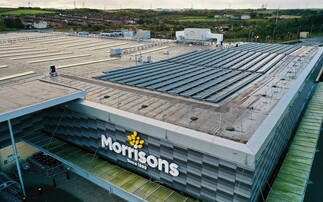BusinessGreen and Greenhouse PR are proud to unveil the Secrets of the Disruptors report
You can read the full Secrets of the Disruptors report here.
Last week the IPCC report confirmed what many in the green business community already knew and feared: that the world is fast running out of time to avert catastrophic climate change.
The report adopted an unusually stark tone, warning the world has just a dozen years left to deliver radical cuts in greenhouse gas emissions or face a future of over 1.5C warming within a few decades. A future without corals and without reliable crop yields, but with rising sea levels and millions of people condemned to climate-related poverty.
To achieve a 1.5C warming trajectory, net global greenhouse gas emissions will need to fall by 45 per cent by 2030, before plummeting to zero by 2050, the scientists said. Such an unprecedented economic and industrial transformation "would require rapid and far-reaching transitions in energy, land, urban and infrastructure (including transport and buildings), and industrial systems", the IPCC warned.
But while much of the media coverage of the report focused on the imminent demise of the corals or President Trump's latest ill-informed dismissal of the latest climate science, a crucial implication of the report's warnings went largely uncommented upon. There is no way to meet the goals the scientists insist are necessary through an acceleration of incremental progress, it is only through the fundamental and rapid transformation of business models and infrastructure that deep decarbonisation can be achieved in the timeframes available. We have to engineer an era of controlled and targeted disruption.
Disruption is a disorientating word. Its connotations are largely negative, and yet if the status quo that is being disturbed is unsustainable, then disruption is essential if you want to achieve progress.
Thankfully, a new and growing cohort of green business leaders understand this reality all too well and are pursuing a step change in low carbon and environmental innovation that promises to reshape the 21st century. Ahead of this year's BusinessGreen Leaders Summit we teamed up with Greenhouse PR to hunt down some of the UK's most promising disruptive companies, and work out what makes their leaders tick.
The interviews, which are compiled in today Secrets of the Disruptors report, lift the lid on what it takes to drive forward with a transformational business idea even when the rest of the business world remains wedded to the status quo. From greenhouses growing food with seawater, to biofuel made from waste coffee, these businesses are pursuing plans that could turn industries on their head.
Most of the interviewees from the report agreed that a healthy dollop of self-belief is a pre-requisite for succeeding in this kind of endeavour. As Sarah Merrick, founder of wind energy start-up Ripple Energy puts it: "It's not going to happen unless you do it."
But these aren't people haring ahead with madcap schemes that don't make commercial sense.
Another striking characteristic shared by all the people we profiled is that even some of the most radical ideas need to be underpinned by a solid business case. The unsustainable economy may need disrupting, but it will soldier on unchanged if those who strive to transform it go bust before their technology or revolutionary business model is properly tested.
For example, LEVC's electric vehicles and Pivot Power's grid-scale batteries and EV chargers, are tipped to dominate the evolving auto market thanks to falling battery costs, rising concern over air pollution, and ever tightening regulations over traffic emissions. Meanwhile, companies like bio-bean and Oddbox are building businesses based on low-cost inputs that would otherwise become waste. "I think we saw an opportunity that made business sense as well as having a strong purpose," says Emilie Van Popperinghe, co-founder of Oddbox.
We're entering perhaps the most challenging phase of all in the global fight to prevent dangerous climate change, the point at which all the theories about affordable cleantech and green growth have to be tested in the real world. Consequently, it has never been more important for all business leaders to recognise the unprecedented scale and scope of the transformation that is required and starting thinking like disruptors. A 1.5C, or even 2C, trajectory will only be achieved by systems change - a full-blown revolution in infrastructure and economic models.
The good news is that some of Britain's brightest business brains are working on delivering just that. As Charlie Blair, managing director of gravity-based storage firm Gravitricity, puts it: "Stick with it - it'll feel mad one minute, but the next you'll have people wanting to jump on board."
You can read the full Secrets of the Disruptors report here.








